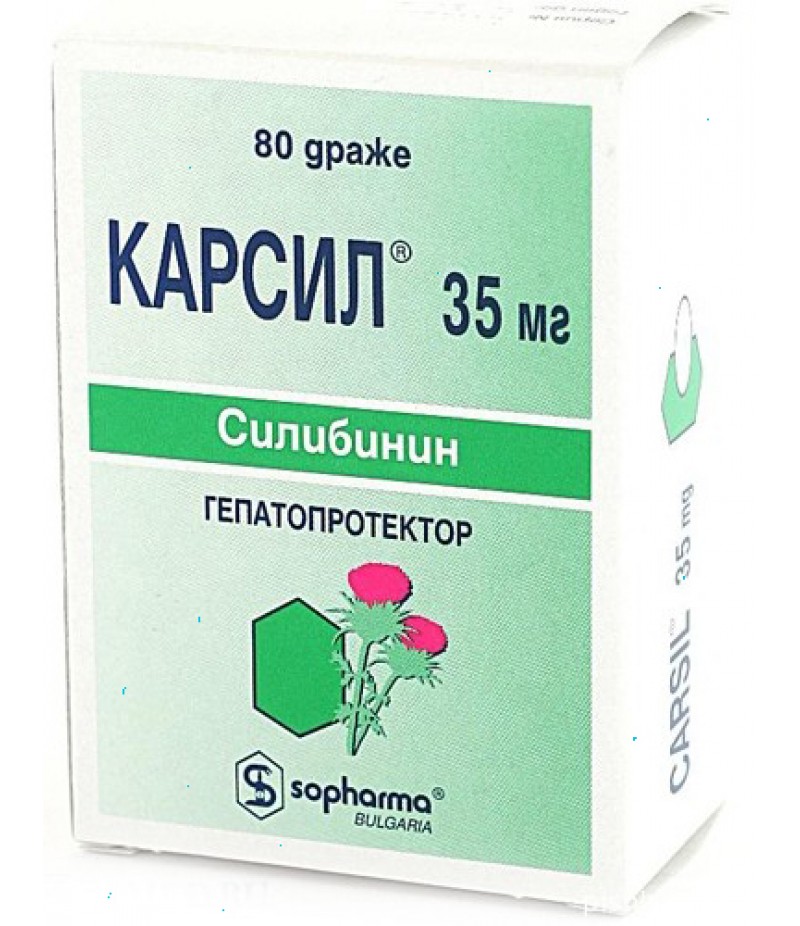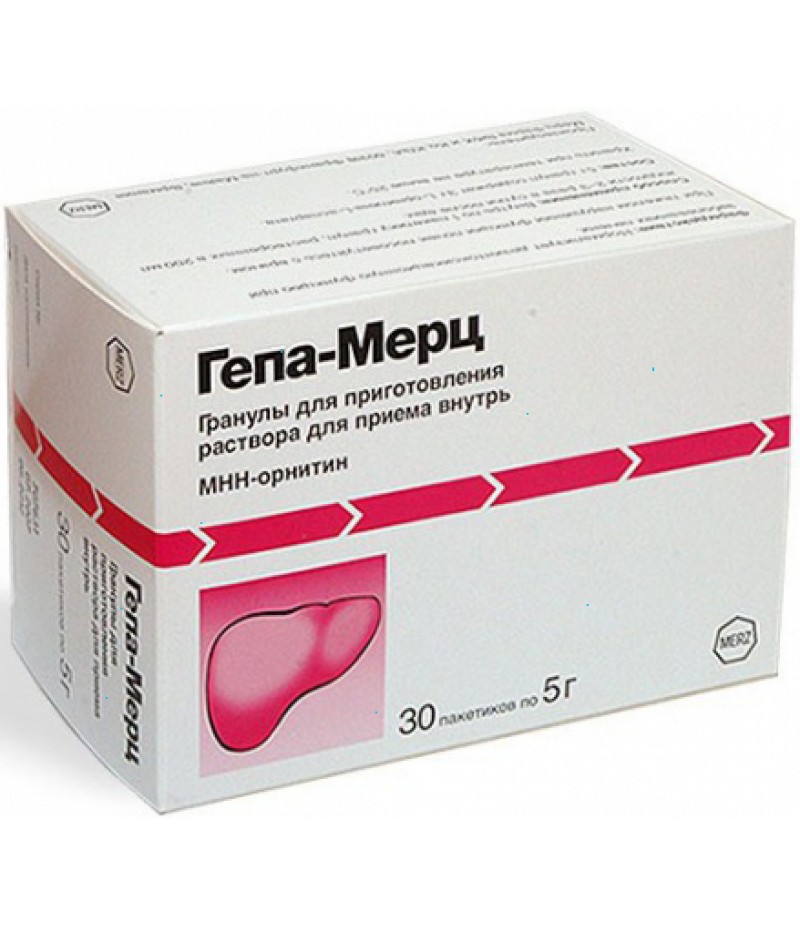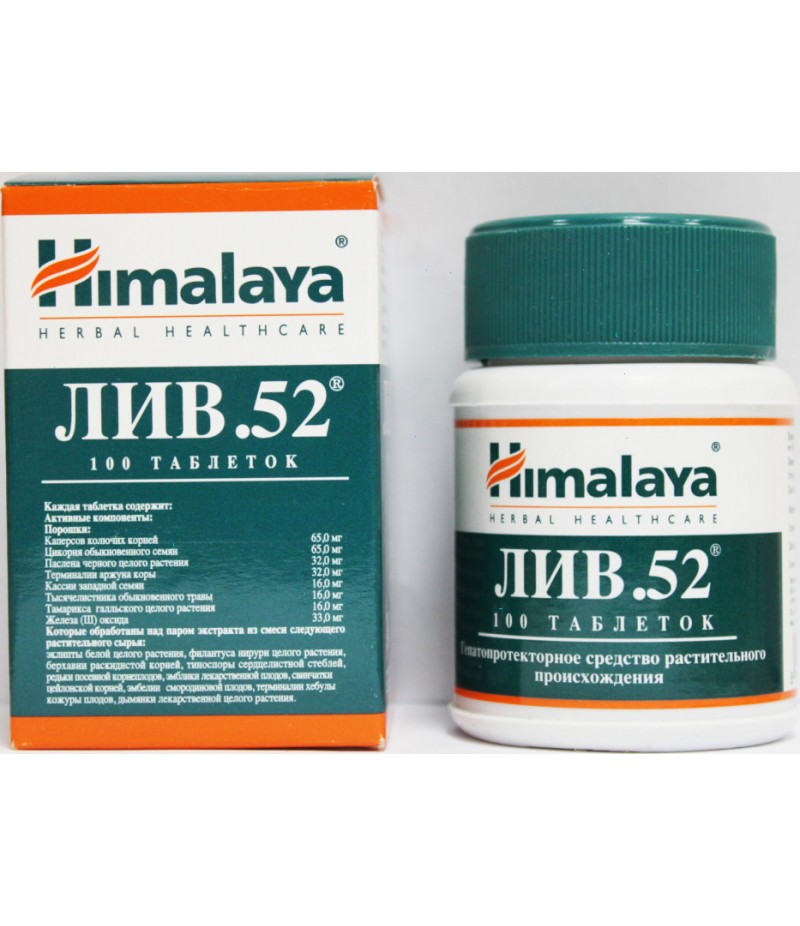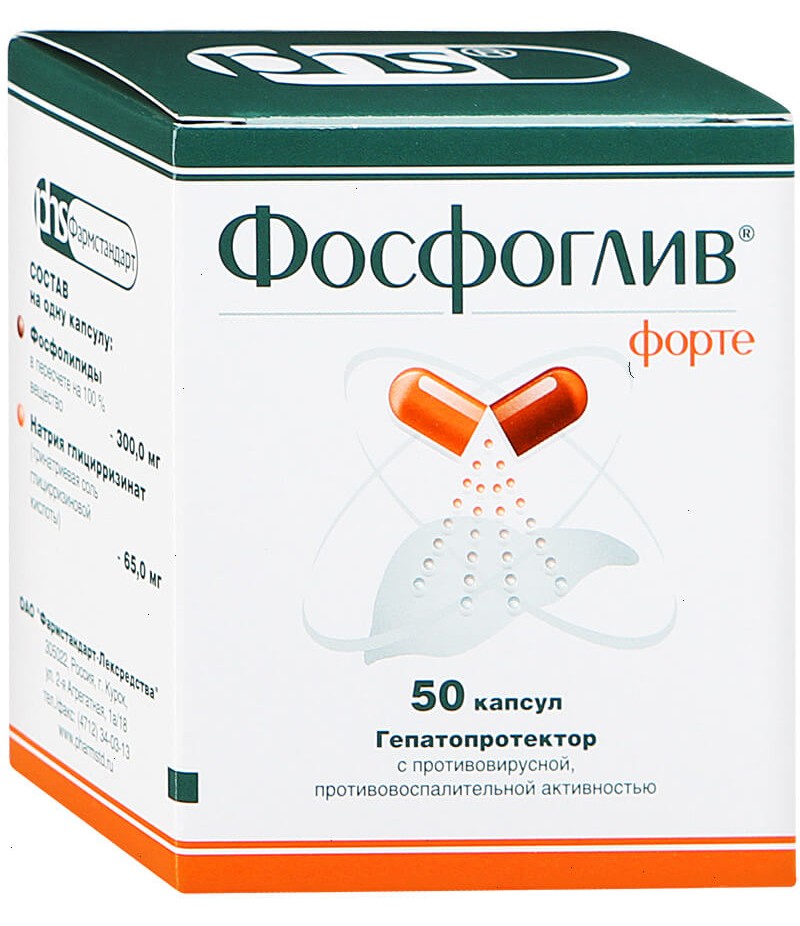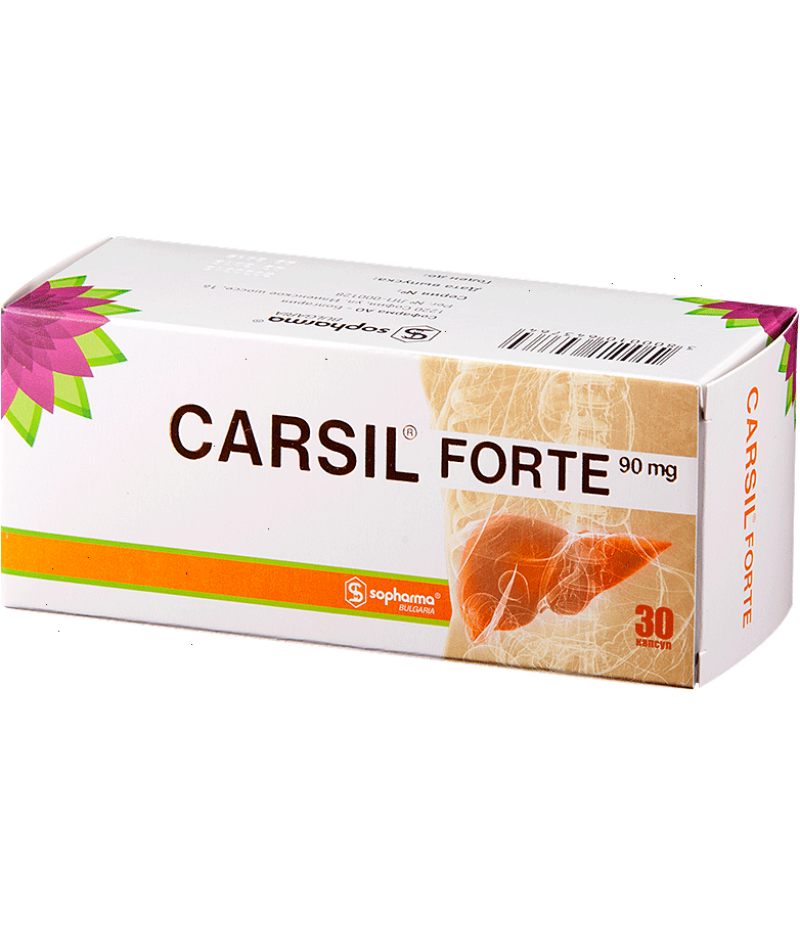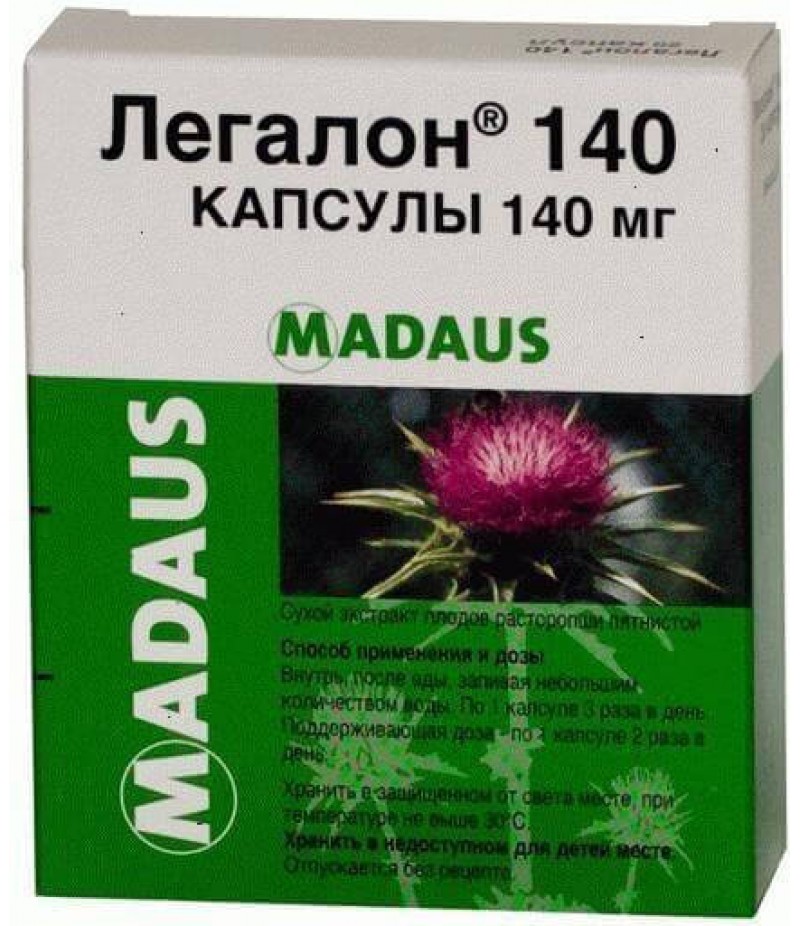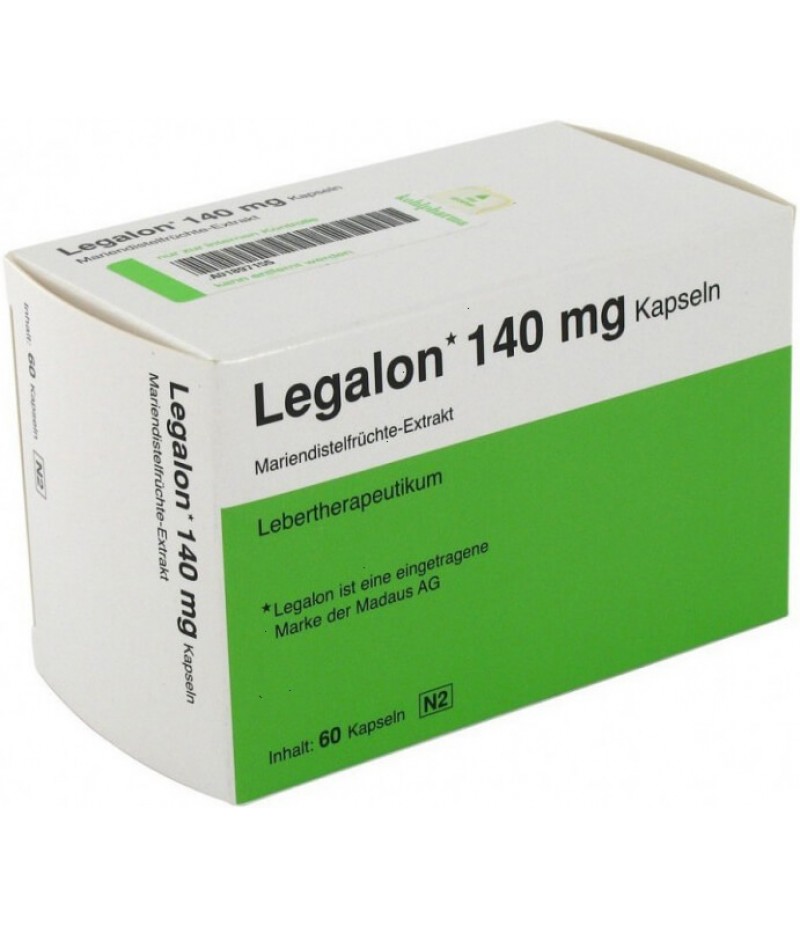Carsil 35mg #80
- $12.99$14.98
- 3 or more $13.80
- Availability:In Stock
Carsil instruction for useReed more about Carsil and buy it hereThe composition of CarsilThe 1st pill contains 22.5 mg of silymarin (dry extract of fruit of spotted milk thistle).Additional ingredients: povidone K 25, lactose mono..
Carsil instruction for use
Reed more about Carsil and buy it here
The composition of Carsil
The 1st pill contains 22.5 mg of silymarin (dry extract of fruit of spotted milk thistle).
Additional ingredients: povidone K 25, lactose monohydrate, wheat starch, microcrystalline cellulose, magnesium stearate, polysorbate 80, mannitol (E 421), talc, sodium hydrogen carbonate, crospovidone, cellulose acetyl phthalate, glycerol, sucrose, diethyl phthalate, acacia, titanium dioxide 171), gelatin, macrogol 6000, brown Opallus AS 26586 (dye).
Form of issue
The company "Sopharma" produces medicine Carsil in the form of tablets in a shell, 80 pieces per pack.
pharmachologic effect
Antitoxic, hepatoprotective.
Pharmacodynamics and pharmacokinetics
Carsil is a remedy for the group of hepatoprotectors (according to Wikipedia, derived from the Latin language, where "hepar" is a noun - the liver, and "protecto" is the verb - to protect). The active plant component of the Carlsil tablets for the liver is silymarin, which has an antitoxic and hepatoprotective effect and is a complex of flavonolignans (silikristin, silidianin, isosilibinin, silibinin), which is extracted from the fruits of spotted milk thistle.
It has been proven for sure that the antihepatotoxic effectiveness of silymarin is manifested due to its ability to compete in the membrane of hepatocytes with toxins, for the corresponding receptor complexes, which leads to the stabilization of the membrane itself and, as a consequence, to inhibition of the formation of hepatic fibrosis and steatosis. Silymarin is involved in the regulation of cellular metabolic and other processes by adjusting the permeability of cell membranes, suppressing the 5-lipoxygenase flux, predominantly leukotriene B4 and reacting with reactive free oxygen radicals. Silymarin activates protein synthesis (functional and structural proteins) and phospholipid biosynthesis in affected liver cells (normalizing lipid metabolism), strengthens their membranes, manifests an antioxidant effect, binding free radicals, thereby protecting the cellular structure of the liver from harmful effects and facilitating its recovery.
The effects of flavonoids, to which silymarin belongs, are determined by their antioxidant properties and are aimed at improving microcirculation. Clinical manifestations of these effects are expressed in reducing the severity of objective and subjective symptoms and stabilization of liver functional parameters (bilirubin, gamma globulin, transaminase activity). The summarized result of the effects of silymarin is a significant improvement in the general condition of the patient and a significant reduction in digestive system disorders, and in patients with eating problems due to liver disease, a qualitative improvement in appetite is observed.
At oral reception there is a slow absorption of silimarin in GASTROINTESTINAL TRACT. The drug is characterized by intestinal-hepatic circulation and does not accumulate in the human body. Distribution in tissues and organs passes quite intensively with the detection of the highest concentrations in the liver and insignificant concentration in the kidneys, heart, lungs and other organs.
Metabolic transformations of silymarin by conjugation take place in the liver. As the metabolic products in the bile, sulfates and glucuronides were found. The average T1 of silymarin equals 6 hours, the excretion of most (about 80%) occurs with bile in the form of sulfates and glucuronides and in some insignificant (about 5%) degree with urine.
Indications for use of Carsil
Indications for the use of Carsil are liver damage of a toxic nature in patients with cirrhosis of the liver and its inflammatory diseases of chronic course.
Contraindications
Contraindications to the reception of Carsil are the conditions of acute intoxication (poisoning) of various origin and age of up to 5 years.
Also, before taking Carsil, you should make sure that there is no personal hypersensitivity to silymarin or other components of the drug.
Side effects
As a rule, prevention or treatment with Carsil is tolerated without any complications or negative effects, only in rare cases or with personal high sensitivity, the following side effects were observed: nausea; increased alopecia; dyspepsia; skin itching / rash; diarrhea; increased violations associated with the vestibular system.
These negative events are transitory and disappear without leaving a trace after the end of therapy.
Carsil tablets, instructions for use
Instructions for use Carsil provides only oral (inside, "through the mouth") taking tablets, considering all the contraindications to their use. Tablets should be swallowed whole and washed down with 100-200 ml of water.
How to take Carsil - before meals or after?
In the official instruction for tablets, there is no information on the effect of food intake on the pharmacokinetic indices of silymarin, which in itself should mean the absence of a fundamental difference between the options how to drink it - before meals or after. However, in the recommendations for the use of silymarin in other drugs (for example, in the instructions for Darcil), there are indications of its reception after eating, and some other sources (sites, forums) advise quite the opposite. In this case, it is worthwhile to clarify this point with the prescribing physician and rely on his experience and qualification.
Dosage regimens
When taking medication by patients older than 12 years in case of its use for the treatment of liver pathology of the lung or moderate nature of the severity of prescribed 1-2 tablets (22.5-45 mg) thrice in 24 hours. In severe situations, it is possible to increase the dosage in half, while maintaining the frequency of receptions.
When treating children (5-12 years), daily dosing is determined according to their weight and is 3 mg per kilogram of body weight, respectively. The daily dose set in this way is divided into 2-3 equilibrium doses in 24 hours.
Duration of treatment is determined based on the disease state and its severity and, on average, takes 3 months.
Overdose
Until now, there is no objective evidence of cases of overdose with the use of silymarin. However, in the case when an accidental or conscious violation of the dosage regimen with the use of excessive doses of Carsil (several times more than therapeutic) is noted, the patient should be vomited, cleanse the digestive tract and prescribe sorbents. If against this background any negative symptoms, definitely associated with an overdose, are detected, it is necessary to conduct the appropriate therapy symptomatology, for which the entire spectrum of therapeutic measures and medicines shown during these or those disorders is used.
Interaction
With the combined administration of Carsil and oral estrogen-progestative agents, a decrease in the effectiveness of contraceptives was observed.
In the case of a parallel intake with silymarin, the effects of anticoagulants may be enhanced (Plavix, Warfarin, Polokard, Clopidogrel); antihistamine drugs (Aleric, Fexofenadine, Histafen, Diazolin); lipid-lowering drugs (Simvastatin, Lovastatin, Vazilip, Cleavas, Atorvastatin); antineoplastic drugs (Vinblastine, Neoben, Vinkristin, Navirel); psycholeptics (diazepam, nosepam, gidazepam, alprazolam, tazepam); antifungal agents (Nizoral, Ketoconazole), because of the inhibitory effect on cytochrome P450.
Terms of sale
Carsil is a non-prescription drug.
Storage conditions
Without special storage conditions, at temperatures up to 25 ° C.
Shelf life
From the moment of production - 2 years.
special instructions
Before you drink the drug Carsil, it should be understood that the treatment of liver damage can be effective only in the case of refusal of alcohol and compliance with diet therapy.
Because of the ability of silymarin to display an estrogen-like effect, care should be taken when it is administered to patients with hormonal disorders (endometriosis, ovarian carcinoma, mammary glands, uterus, uterine fibroids, prostate carcinoma).
Wheat starch, which is contained in the drug, can include gluten (a small amount), and therefore the reception of Carsil is considered safe for patients with gluten enteropathy (celiac disease). Other patients with wheat allergy (other than celiac disease) should not take this medication.
Carlsil includes lactose, which should be taken into account when it is administered to patients with intolerance to sugars.
The development of jaundice on the background of taking silymarin requires an emergency consultation with a doctor.
In veterinary medicine, Carsil is also used in animal liver diseases, most often for cats and dogs. Dosage and mode of reception is determined by the veterinarian, as a rule, according to the scheme for children 5-12 years (3 mg of silymarin per kilogram of body weight). For example, to treat a dog weighing 15 kilograms, prescribe 45 mg of silymarin (2 tablets of Carlsil).
Carsil analogues
Children
Use Carsil for treatment of children under 5 years of age is not recommended.
With alcohol
The combination of Carsil and alcohol is at least equal to the zero effect of the treatment, since the effects of silymarin are directed to the restoration of infected liver cells, and alcohol performs a completely opposite function. Also, it is not to be hoped that alternating the use of alcoholic beverages with the use of hepatoprotectors, it is possible to preserve the liver in its original form, since the toxic damage caused by alcohol to alcohol during its excessive consumption can not prevent, let alone reverse, any medications.
During pregnancy (and lactation)
At the moment, all the potential complications of silymarin in relation to the fetus, the expectant mother and infants are not investigated, in connection with which it is not known what exactly the consequences of pregnancy and lactation can cause tablets Carsil, from which they are not assigned during these periods.
Reviews of Carsil
Most of the reviews of specialists and patients about the drug Carsil, left in various forums, created specifically to discuss issues related to liver disease, are positive. People taking this drug with various hepatic problems noted normalization of digestion, disappearance of nausea, feelings of heaviness and pain in the liver region, improvement of general well-being. Also, the drug receives approval from doctors in case of its use after antibiotic therapy, chemotherapy and other medication regimens that have a harmful effect on the cellular structure of the liver.
Some women on the forums advise taking Carsil for weight loss and even sharing their own experience with the use of this drug. In this case, the effect of weight loss is most likely associated with the normalization of digestion and improving the digestion of food.
It should be reminded once again that therapy with Carsil is quite long (usually 1-3 months) and can be successful only if the diet is strictly adhered to, refuses alcohol and strictly complies with all prescriptions of the doctor regarding the dosage regimen.

